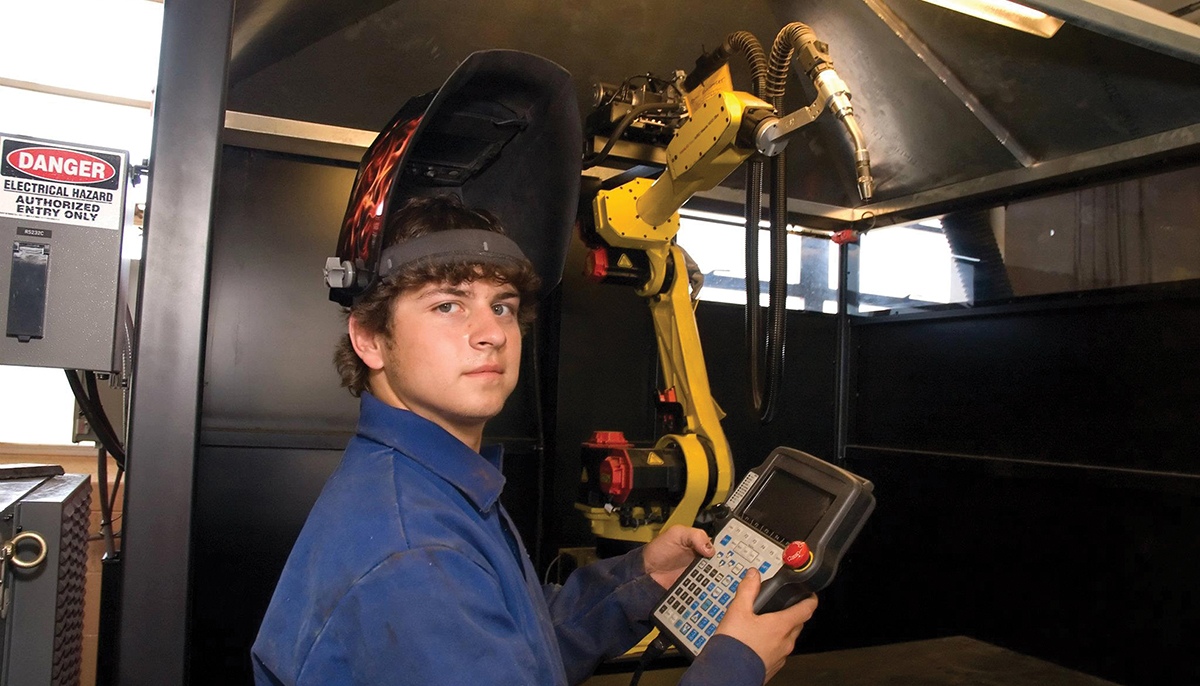By Minnie Lamberth
Recruiting the next generation of construction workers

Facing a severe shortage in its workforce, Alabama’s construction industry came together in 2010 to push a simple message: “Go Build Alabama.”
The mass media marketing campaign promoting the theme is a creation of the Alabama Construction Recruitment Institute, which has served as a model for other states on how to recruit the next generation of skilled construction trade workers.
The first step took place when partners across the commercial and industrial construction industry – including labor unions, builders, contractors, schools, colleges and construction business owners – joined forces to address the problems they were observing. They approached legislators for help establishing the recruitment institute.
“It was driven by industry,” says Jason Phelps, the ACRI’s executive director. He explained that industry leaders recognized that their workforce was aging and would soon head into retirement. The research was also showing “young people weren’t considering construction as a viable career,” Phelps says.
“These are good, viable jobs (so) that once you get some training under your belt, you’re going to be in the upper half of the wage earners in the state,” he adds.
At the time the ACRI launched the “Go Build” campaign in August 2010, one third of all skilled tradesmen in the construction industry were over the age of 50, and training programs weren’t producing enough young workers to replace those soon to retire.
[quote]“If kids don’t see it as a future for themselves, they’re not going to sign up,” Phelps says. “We try to spark their interest.”[/quote]
Next, they help them find the right training programs. Links with information about community college programs, career technical education and apprenticeships are available at gobuildalabama.com.
Mike Rowe, former host of the Discovery Channel’s “Dirty Jobs,” was one of the first faces associated with the phrase “Go Build Alabama” when he served as spokesman for a series of television commercials, many of which ran during or around sports programming.
The results of the campaign have proven worthwhile. Based on a May 2013 survey of career technical students, Phelps says, “Thirty-one percent said ‘Go Build Alabama’ played a role in choosing a career in construction.” Those numbers correlate closely with data that shows a 33 percent increase in student participation in career technical programs.
Colleges partner with automotive industry

As Alabama’s automotive industry moved into high gear over the last ten to 20 years, thanks to the location here of automotive plants for Mercedes, Honda, Hyundai and many other suppliers, the state’s community colleges and universities also created partnerships with the industries within their communities.
With the support of National Science Foundation grants, 11 of the state’s community and technical colleges formed CARCAM, or the Consortium for Alabama Regional Center for Automotive Manufacturing.
The purpose, says CARCAM director Beverly Hildebrand, is to educate skilled technicians for the high-tech-based fields of robotics, industrial automation and precision machinery. The colleges offer an Automotive Manufacturing Technology degree along with curriculum and programs validated by industry representatives. They prepare workers not just for automotive manufacturers but also for their tier 1 and tier 2 suppliers and other advanced manufacturing industries in their communities.
[quote] Corey Edwards, a CARCAM student at Gadsden State Community College, says he’s glad to be part of the program. “I thought it was a really good fit as far as finding a good job and job openings,” Edwards said. [/quote]
The 25-year-old student is pursuing an associate of applied science in electronics engineering technology, and though he hasn’t decided where he wants to work, he knows opportunity is there. He said CARCAM and the American Manufacturing Association are good at helping good students find jobs when they graduate – and giving them support during their schooling.
“CARCAM gives you everything you need for success in an industrial environment,” Edwards says. “I’m glad I made that choice.”
Community colleges participating are: Bevill State, Calhoun, Central Alabama, Gadsden State, Jefferson State, Lawson State, Shelton State, Southern Union State and Wallace State, along with Drake State Technical College and Trenholm State Technical College. More info: www.carcam.org.




